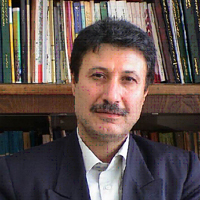The Evaluation of the Affecting Factors on the Social Capital in Mashhad Central Texture
Author(s):
Abstract:
1- Introduction Nowadays theorists consider social capital in addition to financial, physical and human capital for the development of any society, and describe it as the main factor and an important variable for the explanation of economic and social differences between different spatial levels. They discuss the lack of social capital as the major reason of inefficiency in planning policies and proposals. This consideration on the concept of social capital literature justifies its needs to be attached to planning and urban planning. The challenge of the central region of cities is one of the toughest issues in our country’s urban planning and there is always a trial and error process to develop and improve which always faces a barrier of residents negative response to participation derived from social capital. This article aims to assess and prioritize the factors that influence social capital in central region of cities and central region of Mashhad which is chosen as the case study. 2- Theoretical Framework Theoretical framework of this study shows that there is a structural relationship between the three categories of social capital, social trust and participation. One of the main components of social capital and the major domain of participation is trust in such a way that Putnam regards it as a solution for the problem of collective cooperation. In other words, social capital is realized as a strong bilateral relationship between levels of civic participation and interpersonal trust so that the greater citizen participation in the community, the more they learn to trust one another. When trust between them is more, they are more likely to participate the in their communities. Moreover, people who trust each other tend to have more trust in government agencies. With this theoretical basis, the present study tries to analyze the factors affecting social capital in the central regions of metropolises (Case study: Mashhad central region). Centers that today need to participation to solve problems more than anything else. 3- Methodology The research method is Descriptive-Analytic. The required data were gathered through questionnaires obtained from 378 residents from the central region of Mashhad using Cochran formula. In order to analysis the questionnaire items, a likert scale with responses ranging from 1 to 5 (very low, low, medium, high, and very high) was used. To validate the survey instrument (questionnaire) formal method credit was used. Selecting indices for estimating and measuring social capital was performed through three main components: trust (public institution), participation (formal, informal) and awareness (of civil rights). The calculations in this paper are based on the factor analysis technique. Therefore, 42 indicators in different dimensions of social capital were selected; which were then reduced to 5 main factors and included 89 percent of the variance. 3- Discussion The study results indicated that in central region of Mashhad, subjective factors such as a public trust and public participation have a greater impact the concept of social capital central region Mashhad residents than objective factors such as official trust and official participation on. These findings reveal that to strengthen and enhance the social capital of central region of Mashhad subjective factors (public participation awareness of civil rights, public trust) are more important since the other factors (official trust and official participation) are under their influence. 4- Conclusion And Suggestion According to the study results, the affective factors on Mashhad central region social capital was indicated a public participation with 24.2 percent, awareness of civil rights, official participation with 2.9 percent. In addition, the first three factors (official participation, awareness of civil rights, official trust) cover almost 70% of the variance. This shows that these three factors have the greatest impact on social capital in the central region of Mashhad. With regard to the three mentioned factors, we realized that they are rooted in the structures and cultural beliefs of residents and are abstract and subjective. The next two factors (official trust and official participation) somehow are related to the previous three factors. According to the findings, we can say that in Mashhad central region, subjective factors such as public participation, awareness of civil rights and public trust, have the greatest impact on social capital. Objective factors such as official trust and official participation are under the influence of them. This means that with the improvement of subjective factors, objective factors will also improve.
Keywords:
Language:
Persian
Published:
Journal Of Geography and Regional Development Reseach Journal, Volume:11 Issue: 2, 2014
Page:
247
magiran.com/p1278038
دانلود و مطالعه متن این مقاله با یکی از روشهای زیر امکان پذیر است:
اشتراک شخصی
با عضویت و پرداخت آنلاین حق اشتراک یکساله به مبلغ 1,390,000ريال میتوانید 70 عنوان مطلب دانلود کنید!
اشتراک سازمانی
به کتابخانه دانشگاه یا محل کار خود پیشنهاد کنید تا اشتراک سازمانی این پایگاه را برای دسترسی نامحدود همه کاربران به متن مطالب تهیه نمایند!
توجه!
- حق عضویت دریافتی صرف حمایت از نشریات عضو و نگهداری، تکمیل و توسعه مگیران میشود.
- پرداخت حق اشتراک و دانلود مقالات اجازه بازنشر آن در سایر رسانههای چاپی و دیجیتال را به کاربر نمیدهد.
In order to view content subscription is required
Personal subscription
Subscribe magiran.com for 70 € euros via PayPal and download 70 articles during a year.
Organization subscription
Please contact us to subscribe your university or library for unlimited access!



